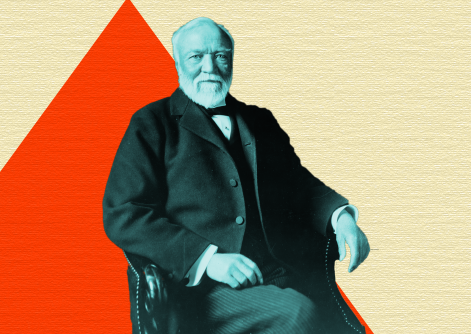But is this really a triumph for concerned groups of citizens and the nation? Or has Chicken Little just persuaded some neighbors that the sky is falling while she quietly pockets some corporate assistance?
The same gang of advocacy groups and donors that oppose every media merger and push for dubious policies like “net neutrality” is thrilled by the lawsuit: Free Press, Public Knowledge, Grantmakers in Film + Electronic Media (GFEM), etc. “A major victory for the public interest,” crows Free Press president Craig Aaron. GFEM’s Twitter feed is ecstatic: “Best Labor Day present DoJ can give America.”
Yet this latest media skirmish appears to fit the pattern of many earlier ones:
• Advocacy nonprofits will utter dire prophecies of apocalypse that prove false.
• Advocates will ignore the potential harm their desired policy may cause to the persons for whom they claim to speak.
• Support for the advocates’ policy will be far more narrow than claimed.
• Intentionally or not, advocates will end up shilling for a few big corporations at the expense of other corporations.
Let’s take these one by one.
FALSE APOCALYPSE
The current prophecies of doom if AT&T merges with T-Mobile call to mind the Chicken Little certainties heard when AOL and Time Warner merged in 2000. The proposed AT&T merger is a relatively small deal at $39 billion; whereas at $350 billion the AOL deal still holds the record for earth’s largest merger. Norman Solomon of Fairness & Accuracy In Reporting denounced the AOL deal at the time with terms like “servitude,” “ministries of propaganda,” and “new totalitarianisms,” as Adam Thierer recalls in a valuable history of media-merger hysterias.
And yet, a decade after that merger the only apocalypse that has occurred has been the meltdown of both AOL and Time Warner, who finally split up after a failed marriage so disastrous that the New York Times reports business schools teach it as one of the worst corporate errors ever made. Thierer explains:
The numbers were mind-boggling. By April 2002, just two years after the deal was struck, AOL-Time Warner had already reported a staggering $54 billion loss. By January 2003, losses had grown to $99 billion.
Another example of bad prophecy surrounds the 2008 merger of the XM and Sirius satellite radio networks, also opposed by Free Press and others who warned that Americans would be crushed in “a tsunami of mergers” and who scoffed at the idea that one media product, in this case satellite radio, would always face serious competition from new technologies. Of course, XM and Sirius did merge and now struggle to keep from drowning under waves of iPods and similar technology – technology that has created exactly the competition Free Press et al. said would never protect us from the XM-Sirius goliath. More broadly, Thierer adds, a McKinsey & Co. study found “Nearly 70 percent of the mergers in our database failed to achieve the revenue synergies estimated by the acquirer’s management.”
Maybe Free Press co-founder Robert McChesney, who’s on record pining “to get rid of the media capitalists,” should go around urging more mergers.
I’m not wise enough to predict whether the AT&T merger, if permitted, will improve the company’s bottom line, but I’ll happily make a bet with any merger opponent: I’ll pay you $100 if wireless prices – which have been plummeting for years despite previous mergers like Sprint-Nextel – are higher a year after the AT&T merger is consummated.
POTENTIAL HARM
Advocates fighting the AT&T merger claim to speak for consumers, workers, and minorities, yet it’s not at all clear the merger would hurt those groups. The reverse may well be true. AT&T, for example, is unionized, while T-Mobile is not, which explains why many unions support the merger. As for minority consumers, they are far more likely than non-minorities to use smartphones rather than, say, home cable connections to connect to the Internet. The proposed merger would likely lead to more and better wireless access that would help these minority and low-income customers, according to Marc Oestreich of the Heartland Institute and Lucy Hood of USC.
(By the way, Hood notes that minorities prefer wireless internet access because the wireless market, without government assistance, has pioneered inexpensive pre-paid cellphone service. Smaller regional companies invented this new business model, which forced “wireless giants” like AT&T and Verizon to provide the same deals.)
No wonder the National Black Farmers Association backs the merger (without having received funds from AT&T).
NARROW SUPPORT
Reading anti-merger advocates’ claims, you’d think they speak for vast numbers of ordinary Americans fearful of AT&T’s depredations. But reporters who’ve dug deeper have found quite the opposite. This recalls the way advocates of campaign finance reform – who had largely the same funders as today’s “media reformers” – duped Congress into imagining a vast constituency lay behind their efforts, when it wasn’t much more than the Pew Charitable Trusts and a few other donors. (See earlier posts here and here on campaign finance reformers and net neutrality advocates, and a longer essay for Capital Research Center.)
Amanda Carey of the Daily Caller has carefully documented the same phenomenon among anti-merger advocates: “the coalition appears to be anything but grassroots.” It’s “an alliance between professional activists and media reform organizations, funded and supported by corporate interests.”
Carey notes that the net neutrality brigade has just bought new letterhead for the AT&T fight, with Google and Sprint continuing to pony up funds from the corporate world. A single p.r. flack, Maura Corbett, has put together this and several similar advocacy campaigns for the same corporate clients. (Sprint is the company most threatened by the proposed merger.) And of course, George Soros-backed funding vehicles like the Open Society Institute continue to provide tax-exempt dollars to nonprofit advocates.
SOME CORPORATIONS ARE MORE EQUAL THAN OTHERS
Which brings us to the conclusion that advocacy groups on the left continue to pick favorites among the big corporations they denounce. In this case, Carey finds Sprint’s fingerprints all over the “Astroturf” campaign against the merger. The campaign’s coalition website, NoTakeover.org, says in small print it “was developed with the support of Sprint,” and Carey notes the site is registered to a Sprint advertising firm.
Amusingly, the site features an “Angry T-Mobile Customer-of-the-Week,” and the first average citizen to speak up was Ben Byrne, who, Carey notes, just happened to work from 2003 to 2008 as creative and technical manager at Free Press. Byrne did not respond to Carey’s requests for comment.
Similarly, when Carey examined the thousands of comments opposing the merger received by the Federal Communications Commission (FCC), she found they largely came via the Free Press and CREDO Action, an advocacy group with interesting connections. Officially, it’s the advocacy arm of CREDO Mobile, which brags it’s “more than a network, a movement” that is “brought to you by Working Assets.” Working Assets in turn is a for-profit company co-founded by Drummond Pike, who also founded the Tides Foundation, and it channels part of its revenues into Tides. CREDO is also – surprise – a re-seller of Sprint wireless services. Another surprise: CREDO donates to Free Press ($36,795 in 2009), as does Tides (a record $87,000 in 2007).
Of course, it’s not illegal for corporations to puff up Astroturf groups and public coalitions to help them navigate the minefields of federal laws and regulations. AT&T has done similar work to build support for its side of the fight. But a few lessons are worth drawing from this latest brouhaha.
First, never assume that noble nonprofit advocates who despise all things corporate and commercial are any less commercial in their own work than a large corporation.
Second, don’t assume nonprofits that claim to speak for the downtrodden are actually helping those constituencies.
Third, don’t believe big corporations are nearly as powerful as their despisers claim. Here’s the Free Press’s McChesney, for instance, waxing hysterical in January 2000 over the merger of AOL and Time Warner:
this deal, which unites the largest media firm with the dominant Internet firm, will in all likelihood trigger another round of mergers that should leave the entire realm of communication under the thumbs of a small handful of companies. And this is for the entire world, not just the United States…. We are driving 10,000 miles an hour down a very dark street and nobody knows what lies ahead. We only know that the handful of billionaires directing this operation cannot care about anything about [sic] maximizing their profits. Everything else is irrelevant. And the government, almost entirely under the thumb of these corporations and their super-powerful lobbies, is doing everything it can to expedite the process.
Tell that to the billionaire who owned shares of AOL-Time Warner the month McChesney wrote, then worth about $185 each, but nine years later worth around $42.
The last and most important lesson concerns the flip side of the false claim that “Big corporations control us all,” namely, the equally false claim that “Ordinary citizens are powerless in the marketplace – unless, of course, you sign our angry petition and donate to our advocacy army that’s your only defense against the all-powerful corporate fat cats.”
That’s not true, even if all a citizen does is buy a used iPod and help ruin the retirement plans of a satellite radio executive.






4 thoughts on “An advocacy triumph?”
Comments are closed.